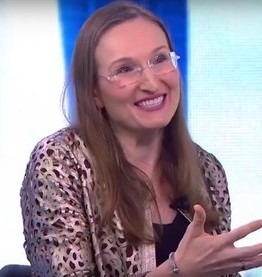2016 Leaders of Tomorrow: Debra Gallimore, RN
Being a compassionate and inspiring clinical leader means understanding the roles, passions and skills of every person on the care team. There's a good reason why Debra Gallimore, RN, director of nursing at Skyline Health and Rehabilitation Center in Floyd, Va., has earned the respect of her staff and understands their job roles so deeply: She's performed most of those jobs herself.
Gallimore's story is a tale of personal drive to excel and the ability to inspire others to do the same. Skyline has been a natural place for her to work—she has practically grown up there. Her mother was on the nursing staff, and Gallimore recalls visiting with the residents and occasionally spending the night when her father had to work all night for the Virginia Department of Transportation during snowstorms.
Gallimore started her own shifts as a certified nursing assistant (CNA) at 18, then seven years later enrolled in a Licensed Practical Nursing program. Later, she gained experience as an MDS Coordinator at a different facility but eventually returned to Skyline to pursue her first love, resident care.
Gallimore earned her nursing degree in May 2015 and, at age 36, is one of Skyline's youngest directors of nursing. Coming up through the ranks has given her great empathy for the people she manages. She knows how hard nurses and CNAs work and all the challenges they face. She also knows that information is key to motivating staff to go above and beyond.
"A lot of times, we forget to tell them why we want something done," Gallimore says."I can go out there and show them hands-on and explain why something is important to the residents. It's like an 'aha' moment as you see it click in their eyes, and they say, 'I did not think of that before.' It makes such a big difference."
She knows she wouldn't have gotten where she is today without the help and encouragement of many people—colleagues as well as residents—and she tries to offer that support to her staff today by teaching them how to encourage each other.
As one example, she has created a new job designation at Skyline: CNA-2. People with this title serve as the go-to person for other CNAs who want to discuss concerns or ideas. Creating this advanced level gives stellar CNAs a chance to become innovation champions and gives the other CNAs a peer advocate. "We want staff members to feel like they kind of own the building," she says.
A number of Skyline's CNAs have enrolled in nursing school, something Gallimore actively encourages. She especially enjoys telling them what a difference they are making in residents' lives. She could have pursued many paths after she became an RN, but she never considered forgoing the gratification of caring for the residents.
"This is their home," Gallimore says. "This is their life, and you get to provide them with the highest quality of life until the end. It is an absolutely enriching, beautiful profession. I tell my staff that we are not a facility. We are an extension of the community. These residents still belong to our community."
Gallimore's deepest passion is memory care. She was the day-shift care nurse for five years on the memory care unit. She has championed an overhaul of activity programming changes for Skyline's memory care unit, even coming in on her days off to help train the staff and spending her own money on materials and activities for the residents.
"I got to do absolutely wonderful things with them," she says. "We got to institute new programs in which everything was individualized to each resident."
The most important and rewarding aspect of memory care is getting to know the residents right where they are at the moment. You cannot meet their physical needs until they trust you, and you can't earn their trust until you figure out where they are in the dementia journey. "It's like a detective novel," Gallimore insists. "You start with the simple little clues that they come in with, and you ask as many people as you can who comes to see them, 'What did they used to do at home? What were their favorite activities? What did they do for a living? How many children did they have?'"
When she first started working in memory care, the care strategy of the era was to redirect and orient residents to align with the present time. Seeing how often this frustrated and upset the residents, she and her staff adopted the care strategy of working to understand residents' needs and make them happy, even if their minds are in 1965.
One resident had been a car salesman. He felt the need to “lock up" the dealership each evening, so Gallimore would get out her keys and let him see her locking doors. "He would think I was locking up the keys to the cars," she recalls. "That gave him that sense of security that it was OK for him to go to bed each night."
Gallimore is in the process of spreading this personalized approach across all levels of care, not just in the memory care unit. She encourages staff to prioritize resident individuality and comfort over checklists of daily tasks. Meanwhile, her clinical care teams have no excuse but to pursue excellence while they're trying to keep up with Gallimore's example.
I Advance Senior Care is the industry-leading source for practical, in-depth, business-building, and resident care information for owners, executives, administrators, and directors of nursing at assisted living communities, skilled nursing facilities, post-acute facilities, and continuing care retirement communities. The I Advance Senior Care editorial team and industry experts provide market analysis, strategic direction, policy commentary, clinical best-practices, business management, and technology breakthroughs.
I Advance Senior Care is part of the Institute for the Advancement of Senior Care and published by Plain-English Health Care.
Related Articles
Topics: Activities , Alzheimer's/Dementia , Articles , Clinical , Leadership











